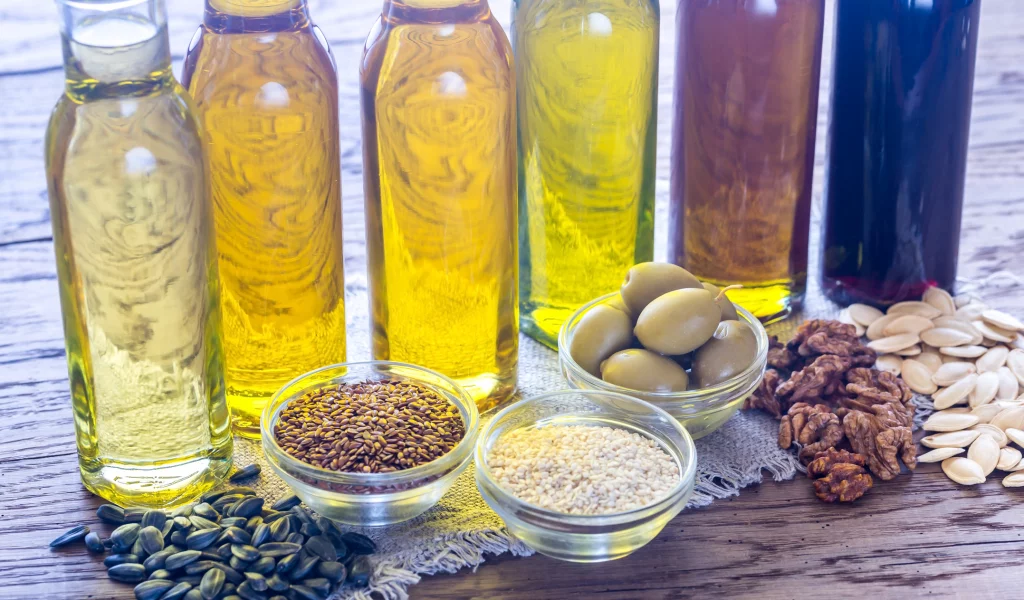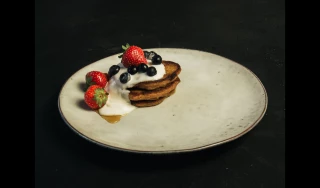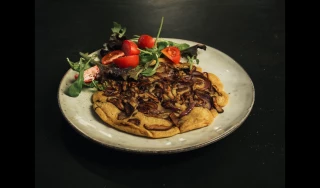
Cooking with the right fats
Did you know that the right way of cooking has a huge influence on the quality of the fats you ingest? Eating fats can be very healthy. Healthy fats are just as important as fruits and vegetables. In fact, you need them every day!
Fat is a controversial topic. Until not too long ago, people thought that eating fat made you fat and that it would cause heart disease. It seemed logical; people were getting fatter and fatter and fat would be responsible for that. The assumption was wrong! Now we know that eating too much sugar and carbohydrates is the main culprit for the construction of fat in the body and that eating fat can be very healthy. Healthy fats are just as important as fruits and vegetables. You need them every day for your vitality!
What do you need fat for?
- Supply of energy;
- Transport of fat-soluble substances;
- Fat is a raw material for e.g. cells and the production of hormones.
What kind of fat is healthy to eat?
There is often a debate about which fats are the healthiest. This usually concerns saturated fats versus unsaturated and polyunsaturated fats. It is often said that polyunsaturated fats are the healthiest.
Are there healthy and unhealthy fats?
That's an important question. Especially the fats that are industrially processed are unhealthy – the trans fats. These are often originally unsaturated fats that have been given a fixed structure through industrial processing; i.e. hydrogen is added to oil to prevent oxidation and to make it “more manageable” and therefore less flexible than unprocessed, real unsaturated fats. As a result, the body can process these fats less well. You often find these types of fats in junk food and processed foods. You can recognize these fats on labels by the name hydrogenated fats.
But also during your own cooking process you have to be careful not to accidentally create trans fats. Chemical processes, including cooking and baking, can also change the structure of fat, turning a healthy fat into an unhealthy fat. In particular, prolonged heating of these unsaturated fats above 180 degrees Celsius results in trans fats and oxidized fats. Pay attention to the boiling point of the oil you use; this can differ per oil.
Extra virgin oil
By "extra virgin" is meant a fat or oil obtained exclusively by mechanical cold pressing or extraction. A truly healthy oil has not undergone any chemical refining. This includes deodorising, bleaching and purification.
Extra virgin olive oil is the best quality olive oil. It contains a high concentration of unsaturated fatty acids, polyphenols and a number of other substances, which may have a health-promoting effect. A number of these substances are heat sensitive and are therefore lost when this oil is heated.
Which fats are suitable for frying and which temperature is appropriate?
The most suitable fats for frying are saturated fats. These come in animal and vegetable varieties. Animal saturated fats are:
- Real butter (margarines and baking butters are processed fats, so don't use these)
- Ghee (clarified butter with animal proteins removed)
- Lard
- Ox white
Vegetable saturated fats:
- Coconut oil
- Red Palm Oil
If you are going to bake with unsaturated oil, it is important to take the smoke point of the oil into account. The healthy effects of the unsaturated fats are lost when heated. Therefore, when using your fat or oil, keep the following in mind:
- Are you going to heat the fat? Use a saturated fat.
- Do you use the cold oil? Use an unsaturated fat, like a fine extra virgin oil
Happy cooking!


